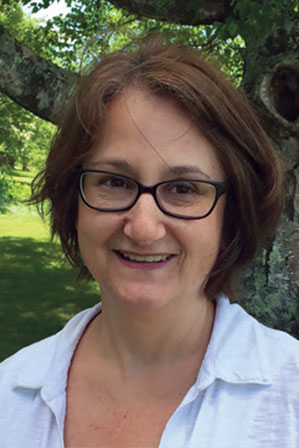We’re Listening
Letter from the Editor
BY SHAWN DORMAN

I write the Editor’s Letter near the end of the production process each month. That way, we have a fighting chance to frame the issue in a way that is close to current. These days, every day brings major upheaval, new developments.
In late May, the tragic killing of George Floyd at the hands of police in Minneapolis ignited protests nationwide—and later, worldwide—against police brutality and discrimination against Black people.
Slowly, and then all at once, over the past month our country has reawakened to the deeply rooted problem of racism in the United States. And so, too, has the Foreign Service. There is an opening up about the realities for people of color in the Service.
From the viral blog post by entry-level FSO Tianna Spears, who resigned due to racial discrimination (in particular connected to repeated harassment by Customs and Border Patrol agents at the U.S. border), to the June 18 resignation of Mary Elizabeth Taylor, the only senior-level Black official at State, we are listening.
From former FSO Chris Richardson’s June 23 NYT op-ed to the U.S. Government Accountability Office reports on steps needed to identify barriers to workforce diversity, we are listening.
This month’s Speaking Out, “Changing Mindsets on Race at State,” is surely a conversation starter. Ambassador (ret.) P. Michael McKinley brings to the fore a personal account of discrimination at State as witnessed over the course of a 37-year Foreign Service career. He challenges the community to have an open dialogue about racism at State.
Our next edition, September, will focus on race and diversity in the Foreign Service, with the aim of not only describing the problem, but also offering perspectives on what can and must be done to make “inclusion” in the Foreign Service real.
This month’s focus is on the Foreign Service response to the COVID-19 pandemic, including a collection of voices from inside the efforts that brought more than 100,000 Americans home as countries closed borders to fight the spread of the disease.
This global health crisis is still very much with us. More than half of U.S. states report rising cases as of late June. Success in some countries is accompanied by surges and resurgence of cases in others.
Setting the scene for our coverage is Ambassador (ret.) Leslie Bassett’s “Waking Up to a Pandemic: H1N1 in Mexico, 2009.” Her portrayal of the response to H1N1 in 2009 resonates today.
“There’s a Playbook: From Ebola to COVID-19” captures our conversation with Jeremy Konyndyk, who led the U.S. response to the 2014 Ebola outbreak as head of USAID’s Office of U.S. Foreign Disaster Assistance. He shares lessons on what the United States must do to end the current pandemic.
Another powerful voice on the U.S. role in fighting the pandemic is Ambassador (ret.) Jimmy Kolker, who offers practical recommendations for global health governance.
Veteran diplomat Donald Bishop looks at “Disinformation Challenges in a Pandemic” and, from a different angle, Professor Jian Wang makes a pitch for “Rethinking Public Diplomacy for a Post-Pandemic World.”
The photo essay from Monica Rojas, “Luanda to Ohio,” illustrates her family’s COVID-19 evacuation story, giving a glimpse of what Foreign Service life has been like during the pandemic.
A compilation of 18 dispatches from the field show how the U.S. Foreign Service works for the American people during a global crisis. In the mix are vivid photos and even haikus from northern China. The Reflection, by Ambassador (ret.) Walter Cutler, takes us back to 1976 Zaire and the first known cases of Ebola.
In the Feature, “Russia’s Return to the Middle East,” Russia expert Angela Stent surveys the landscape of that country’s foray into a volatile region.
AFSA President Eric Rubin reflects on the unrest in our country in “Living Up to Our Ideals.”
We’re listening, and we want to hear from you. Please respond to this edition and share your ideas for how the Foreign Service can better live up to its ideals.

